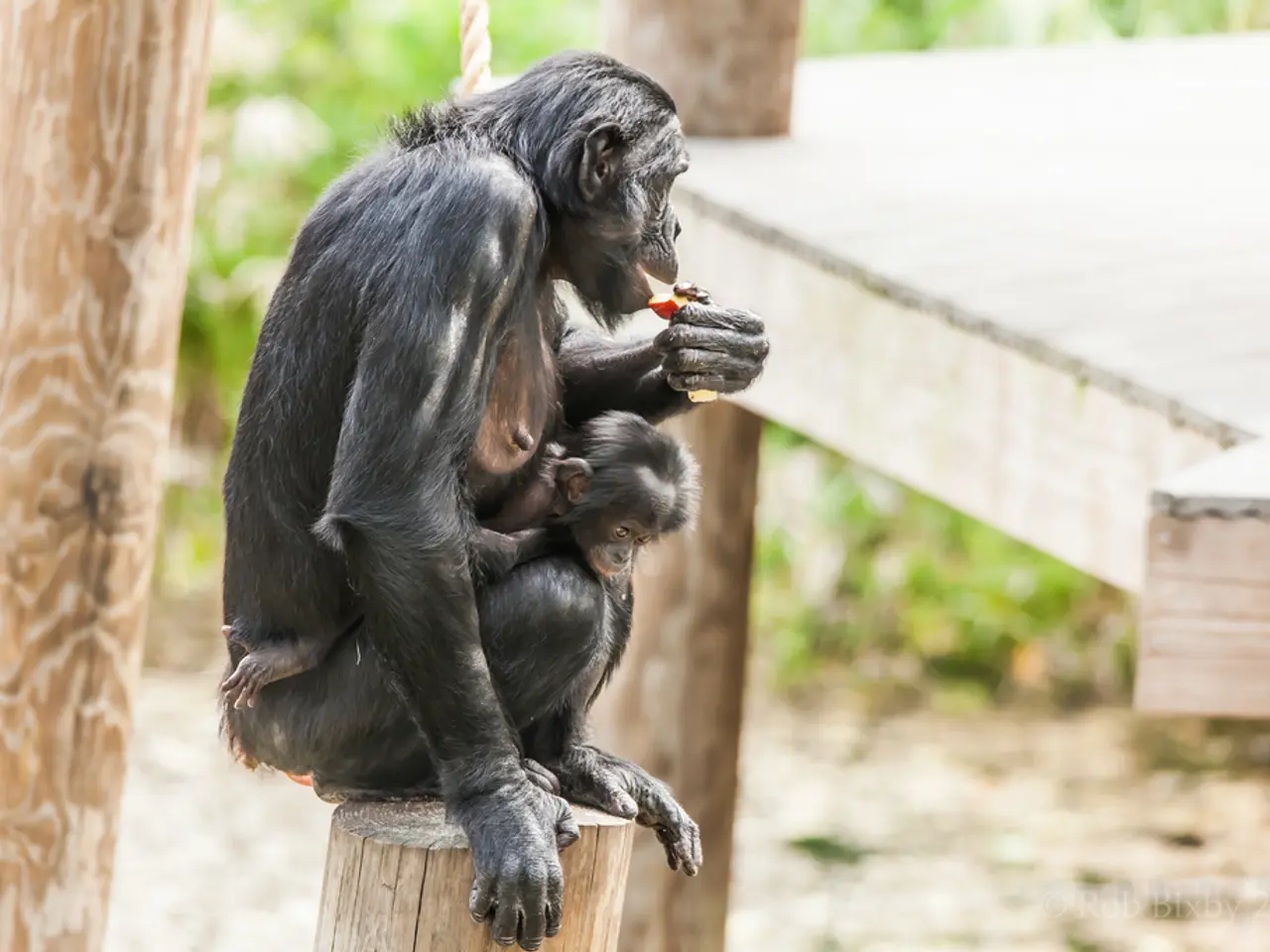Gathering Fruits Pivotal for Chimpanzees' Existence and a Key Player in Human Evolution's History
In a groundbreaking study published in BioScience, a collaboration between the University of St Andrews and Dartmouth College has shed new light on the ecology of great apes. The researchers have identified a critical yet previously underestimated component of great ape behaviour: the consumption of fermented fruits, which they have termed 'scrumping'.
The absence of an existing term to describe this precise feeding behaviour on fermented, fallen fruit initially contributed to its underreporting and understudy. By coining and systematically employing 'scrumping', the researchers fill a semantic gap and create a conceptual tool for future research on this overlooked ecological niche.
The study enriches our interpretation of primate behaviour within a broader human context. African great apes, including chimpanzees, gorillas, and bonobos, frequently consume fruits that have fallen and fermented beneath the canopy. In contrast, orangutans do not display this behaviour with any regularity.
Ethanol, a naturally occurring byproduct of ripe and overripe fruits, accumulates as sugars ferment in warm, humid environments like tropical forests. This behaviour is not exclusive to humans; our ape ancestors may have been enjoying a shared drink long before the emergence of modern cultural practices such as enjoying a cold pint of scrumpy or engaging in festive communal drinking.
The team's integration of behavioural data with genetic information marks a new frontier in primatology. African great apes harbour a mutation conferring markedly enhanced enzymatic efficiency in metabolizing ethanol, an ability over 40 times greater than that found in orangutans and many other primates. Understanding if and how similar social dynamics operate in great apes could offer profound insights into the evolutionary origins of human sociocultural behaviours tied to alcohol.
The research methodology is grounded in comprehensive and longitudinal field observations spanning multiple ape communities and habitats. Scrumping, the act of gathering windfallen fruit, appears to be tightly interwoven with the social fabric of these primate communities. The next critical step involves investigating the role of scrumping in mediating social relationships among non-human apes.
The findings of the study imbue modern cultural practices with deep evolutionary significance, rooting seemingly mundane activities within an ancient biological and social continuum. The study links behavioural ecology and molecular genetics, bridging micro and macroevolutionary perspectives on alcohol consumption. The study's narrative suggests that our ancestors' early interactions with fermented fruits could have laid the biochemical and cultural groundwork for the development of early alcoholic beverages and the cultural phenomenon of feasting and communal drinking.
Read also:
- Nightly sweat episodes linked to GERD: Crucial insights explained
- Antitussives: List of Examples, Functions, Adverse Reactions, and Additional Details
- Asthma Diagnosis: Exploring FeNO Tests and Related Treatments
- Unfortunate Financial Disarray for a Family from California After an Expensive Emergency Room Visit with Their Burned Infant








